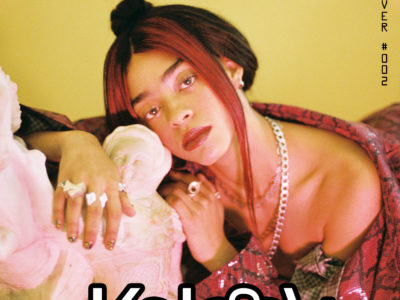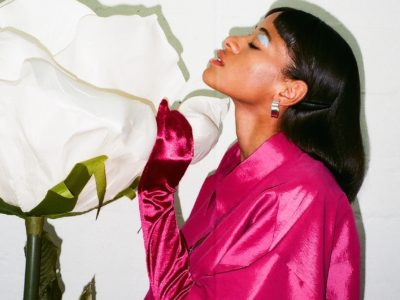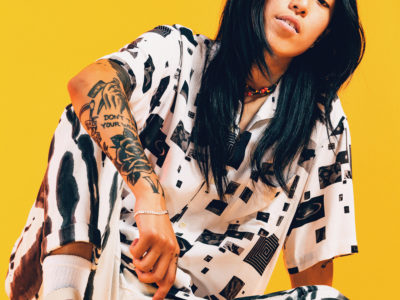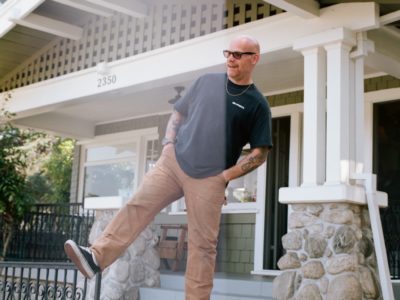Na-kel Smith, Skateboarder
WORDS BY : RANA TOOFANIAN | PHOTOS BY : JAMES BAILEY
“I’ve got swag”, alleges Na-Kel Smith, aka @thatsonme, upon being asked what sets him apart from other pro-skaters. “I care about my clothes, about my shoes, about how I look, about how my tricks look… but not too much. I’m not faking the funk.”
The nephew of famed skateboarder Kareem Campbell (who popularized “The Ghetto Bird” trick), Smith has himself become a top gun: breaking out in William Strobeck’s cult Supreme “Cherry” film, alongside Sage Elsesser, Sean Pablo and the late Dylan Rieder in 2014 and soon after, going viral for landing a 360 flip on his skateboard between cars on the 110 freeway.
These days, there isn’t much Smith hasn’t done. Selling-out sneakers through his design partnership with Adidas, co-founding his own brand Hardies Hardware (with fellow skaters Tyshawn Jones and Kevin Bradley), rapping alongside Odd Future, and starring in Mid ‘90s (Jonah Hill’s upcoming directorial debut produced by a24): Smith is the renaissance man of the skate world, at only 23.

Are you able to pinpoint where your primary impulse to skate came from?
My uncle is the skateboarder, Kareem Campbell. As a kid, I remember playing Tony Hawk Pro Skater 1 with him. He was the only black character in the game. Seeing someone you know in a video game – watching that person in real life and also on a screen – that definitely left an impression on me. I was always a thrill-seeking child, and I knew that skateboarding looked cool. Soon, more than anything else, skating just became something I was good at. I don’t think that back then I ever really expected that I would be a pro: I just wanted to skate. At some point, things sort of gained momentum and skating became my life.
Beyond the possibility of being immortalized in a video game, what did skating represent for you back then?
Magic. I couldn’t wrap my head around how it was actually possible to do these tricks that I had seen in videos. I didn’t get how you could jump up and keep the board with you – that was crazy to me. Later, I started to understand the science behind everything – the combination of movement, pressure, speed.
Do you still experience those moments of magic you encountered early on, back when skating was just a hobby and not your career?
100%. That feeling of rolling away from a trick – of trying and trying until I’m able to hit it or even just accidentally landing it the first time – those are still moments of magic for me. Today, the magic is also the joy and happiness I receive from what I do and how that affords me the opportunity to give myself and my mother a better life. But, before livelihood or career, skating really is a part of who I am: a skateboard was my friend when no-one else was; skating helped me get through some of my worst and best times. After I lost my virginity, I was happy – so I went skating. After I got into an argument with my parents, I would leave to skate for hours. Skateboarding is somehow present in every single memory in my life.
So, does skating ever move beyond practice and into a more spiritual space for you?
When you practice something every day, it’s a religion. That’s what my dad told me a long time ago.
What would you say are the lessons skating has taught you and that you’ve applied to other areas of your life?
The simplest one is: fall down and get back up. Above all, skating really teaches you to never to give up on something and forces you to develop a strong work ethic. In a broader sense, it’s also taught me how to maneuver around an industry where not everyone is your friend. When you get in the van on tour with a group of random skateboarders and realize there’s only a few guys you fuck with on the trip, you learn that you can’t mix business and emotion – you are here to skate. That’s a lesson I’m still trying to learn.
Skating is as much about creativity and style as it is technique. What is it about you as a skater that you think sets you apart?
I’m just different. First off, I don’t care about being accepted… Alright, I’m not going to say I never did [laughs] because there was a point in time when I did want that validation from the skate community; when I needed another pro-skater to tell me that trick a looked good. A lot of people will do anything for that. They’ll hang out with people they aren’t friends with or can’t stand; they’ll change who they are as a person and their aesthetics just to work with certain companies and become a pawn in that businesses’ puzzle. I don’t look at skateboarding as a sport. I look at it as an art; and artists, they get taken advantage of. So, you need to make sure you’re not out here getting taken advantage of and letting your art be compromised. If there are only a few companies that truly care about the people that they chose to fuck with – then I’m not going to bite my tongue: I’ll always stand up for myself.
Secondly, I’m not afraid. Skateboarders are so scared to do something other than skate. I’m not. Some people are 60 years old and still skate pools but I enjoy doing other things outside of skating just as much as I enjoy skating itself. As a teenager, I was so caught up in trying to become a pro-skater. Now that I have done that – and no-one can tell me that I’m not a real skater – I’m not afraid to grow myself outside of skate.
How do you overcome that fear to reach beyond what feels safe and experiment in new areas?
I’m battling with what I feel my potential is and where I can take it. Right now, I don’t feel fully solidified in my career – meaning that if I don’t play my cards right – I can fall off and be broke when I’m 40. With this being early on in the year, I want to start playing with bigger numbers but I also want to stop being afraid to do what I want to do. I said that I will go further outside of the box than others but that doesn’t mean that there aren’t still some boxes that are scary for me to jump out of. So, for me personally, it’s about building that confidence so that I can say “fuck it”, this is what I’m doing.
Skate culture, viewed in the context of luxury and commercial brands, has arguably never been as influential as it is now. In fact, not long ago, it would have been inconceivable that a luxury brand like Céline, would be producing slip-on sneakers as a seasonal staple. What is it about skate culture that makes it so appealing to brands and consumers? And, what does it mean for skating, if anyone can buy the shoes?
It’s close to the streets. Skaters are cool: we are just regular. And, all big corporations want to appeal to what is going on in our real, everyday lives. They want to reach the youth because they will be spending money for the longest. So, everyone wants a piece right now. The best thing about when a scene blows up, once Céline and Saint Laurent make some fucked up shoes that put you on the map – is that people start to pay attention to what’s really going on. They notice the people within that scene who have their own unique style. Skating isn’t basketball – we don’t all wear the same uniform or play the same game. We all do what we do individually – listen to our own music, dress our own way, edit our videos how we want.
Earlier you touched on the artistry of skate – how do you think skateboarding’s entry into the Olympics will impact that and the culture overall?
I don’t know but I really hope that skateboarders are wise enough form a union so that people will get paid what they deserve. A lot of people are out here busting their ass for chump change. That’s something skaters have to deal with. Nobody in the NFL is getting a $500 check, period. A $500 check is substantial in skateboarding but that can’t set you up in the future. The pain that you put yourself through physically and mentally – being separated from your family, making yourself available to travel around the world at a moment’s notice or turn up to support an event – surely that’s worth more. Of course, if we’re smart, we can get paid a good amount, but that can take a little too long in skating. They really want you to grind it out and it’s not until near the end of your career before you start getting the checks. In the NBA, you’re getting a Ferrari, you’re buying your mum a house. That’s just how I look at it. All of this has to pay off. And, the only reason I’m so adamant about it paying off is that I don’t want to go back to my old life. I don’t want to shower in the cold or not be able to eat because there is no food.
Are there skaters you’ve looked up to or drawn influence from? Or, do you find inspiration from outside of the skate world?
Kanye West is my influence. I feel like him [laughs]. I understand the things that he talks about. I’m so passionate about skating to the point where it fucks me up and I get emotional about it. You can’t mix business and emotions but also you can’t just be business-minded because then what you create won’t have any feeling behind it.
So, what keeps you grounded and allows you make the best decisions? Do you follow your instincts?
Yes. 100 percent. They got me here. There was a point in time when I probably should’ve quit skating and got a job but I kept going. My past is what keeps me grounded, looking back at the journey I’ve been on to get here.
And, looking forward? Is there anywhere left to skate?
I just want to grow into the man that I see myself being.






